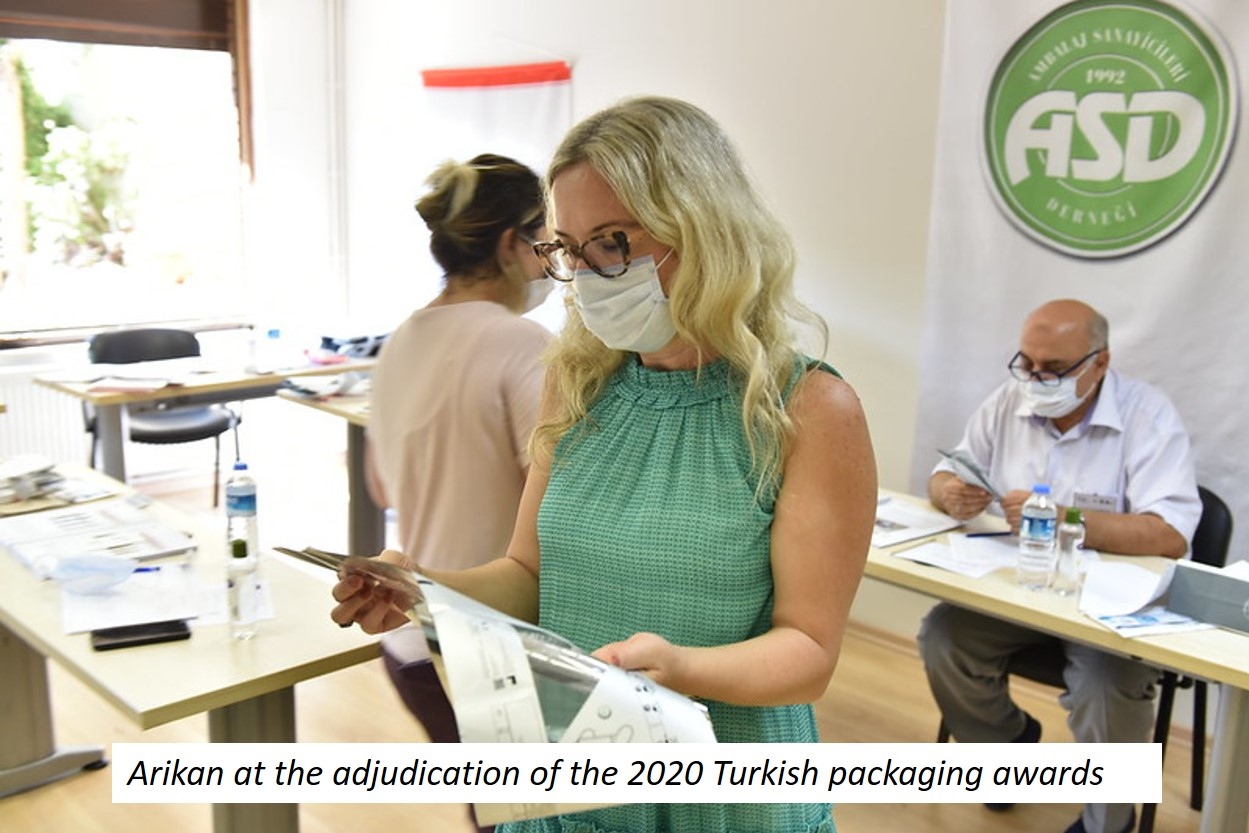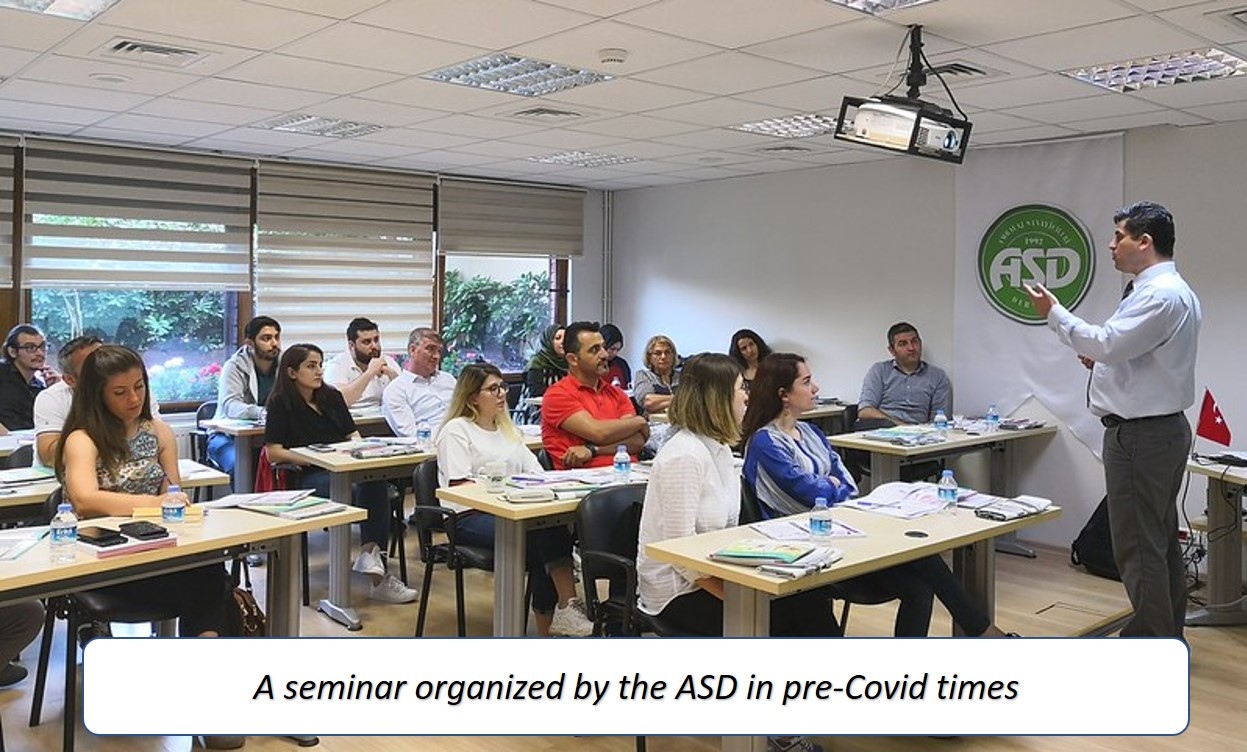ASD, Turkey: a focus on the future, export and industry needs
 When we speak to Aslihan Arikan, Secretary General of the ASD, Turkey is about to go into another lockdown to reduce the spread of the virus. But overall, she says, the country has not seen too many restrictions or been too badly affected, in an economic sense, by over a year of the pandemic. “Our packaging, food & drink and other consumer goods industries have all continued working,” she reports.
When we speak to Aslihan Arikan, Secretary General of the ASD, Turkey is about to go into another lockdown to reduce the spread of the virus. But overall, she says, the country has not seen too many restrictions or been too badly affected, in an economic sense, by over a year of the pandemic. “Our packaging, food & drink and other consumer goods industries have all continued working,” she reports.The bigger picture for the ASD and its membership of over 230 packaging materials manufacturers and converters is a positive one. Forecasts have been scaled back slightly in the light of the global economic slowdown, but the predictions are that Turkey’s lively packaging sector will increase its exports to between $8 billion and $10bn by 2023. The figure for 2019 was $4.7bn.
As in other countries, the boom in online sales and home delivery over the past year has benefited certain portions of the packaging industry. “The corrugated board segment was already developing, and this effect has been accentuated by the needs of logistics, including those of e-commerce during the pandemic,” she says.
In some other ways, Turkish markets are bucking – rather than mirroring – international trends. “Globally, metal packaging consumption is increasing and glass is decreasing,” Arikan points out. “But in Turkey, it’s the reverse. To some extent, glass is taking market share from metal.”
Turkey’s longstanding objective of joining the EU means, for example, that “99% of regulation relating to packaging is applicable in Europe,” she says. In terms of sustainability, convergence with Europe is also being steered by export requirements. “We’re moving towards zero-waste, with more recycling planned,” Arikan reports. “Monomaterials are the growing trend, both for flexibles and rigid packaging.”
 The ASD itself has wide-ranging activities, from an industry show, held every year in Istanbul, to two packaging and converting magazines and an Academy. Regarding the latter, she says: “Before the pandemic, we were holding up to two face-to-face training seminars a month for people already working in the industry.” Recent topics for online sessions have included an update on new packaging waste taxes, Good Manufacturing Practice (GMP) hygiene standards and guidance on BRC standards.
The ASD itself has wide-ranging activities, from an industry show, held every year in Istanbul, to two packaging and converting magazines and an Academy. Regarding the latter, she says: “Before the pandemic, we were holding up to two face-to-face training seminars a month for people already working in the industry.” Recent topics for online sessions have included an update on new packaging waste taxes, Good Manufacturing Practice (GMP) hygiene standards and guidance on BRC standards.“We have around 70% of Turkey’s packaging producers as members,” says Arikan. “And we’re gaining new members every year. I think there will be even more investment in packaging in the wake of the pandemic.”
Recently, the overlap between the ASD’s membership and the latest packaging research and technologies was explored in a congress, organised by Arikan and her team, on the theme of packaging and sustainability. This was the first congress of its type the ASD had organised, but she does not think it will be the last.
Within another IAPRI affiliate member, the World Packaging Organisation (WPO), Arikan has in the past performed the role of vice-president for education, and she still takes a particular interest in this area. Like many other countries, Turkey has no specific schools or university departments of packaging, or bachelors’ degrees in packaging. Work tends to go on in food technology, engineering or design departments, she says.
“Because of its multi-disciplinary nature, I personally believe packaging science in a university setting works best within postgraduate studies,” she says.
When it comes to research and wider development in the Turkish industry, she is certain that the need to mitigate climate change and meet the requirements of the European Green Deal will overshadow other themes over the next few years. The ASD’s members will need everything from thinner, high-barrier, monomaterial flexible packaging to accurate lifecycle analysis (LCA) regarding the environmental impact of different materials, she says. New research will be as important as ever.
http://www.ambalaj.org.tr/